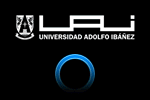Journal of Public Economic Theory
This paper analyzes the political support for different funding regimes of education in a one‐person, one‐vote democracy. We focus the analysis on four systems that have had a preponderant presence in the political debate on education: a private system, a public system that delivers the same resources to each student (universal‐free education), a public system that intends to equalize results, and a public system that aims to maximize the output of the economy. We show that a system of universal free education is the Condorcet winner. The level of income inequality and the degree to which income distribution is skewed to the right are key factors behind this conclusion. We also show that the voting outcome of public versus private funding for education depends crucially on the type of public funding under consideration.
Ver publicación





